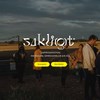narration
Science Denial. A Narrative Review and Recommendations for Future Research and Practice
European Psychologist Abstract Science denial has adverse consequences at individual and societal levels and even for the future of our planet. The present article aimed to answer the question: What lea
Access to occupational networks and ethnic variation of depressive symptoms in young adults in Sweden
Social Science & Medicine, Volume 190, pp. 207-216. doi.org/10.1016/j.socscimed.2017.08.022 Abstract Social capital research has recognized the relevance of occupational network contacts for individ
Completed: Cultural variation in social perceptions of norm-breakers and peer punishers
Social norms may be enforced by individuals informally punishing each other for norm transgressions. But how does society really perceive these informal punishers?

Staffan Julén
I am Head of communications at the Institute for Futures Studies, documentary film director and producer. At the institute I have among other things been working on a research project financed by the where I examined how artistic subjective narration can develop the documentary film.
Completed: The worst lie is the documentary – what role does the subjective documentary film play in a post-truth era?
How can artistic narration, based on subjective perspectives, develop the documentary film? The project will spread knowledge and reach new arenas where artistic research is usually not portrayed.
“I just want to be the friendly face of national socialism” The turn to civility in the cultural expressions of neo-Nazism in Sweden
in: Nordicom Review, Volume 42: Issue S1This article is based on a case study of the media narratives of the neo-Nazi organisation Nordic Resistance Movement (NRM) and situates this particular actor w

Sakli(g)t 2024: Sveriges första sakprosafestival
Sakli(g)t is Sweden's first festival of literary non-fiction, organized by the Rikstolvan cultural centre outside Simrishamn in collaboration with the Institute for Futures Studies and Linnaeus UniverGiven the central role of non-fiction as a knowledge-transmitting link between science and the public, Sweden needs an arena where the narrative non-fiction book is the focus of in-depth discussions on the politically increasingly hot issues of facts, truth, narrative, reality and how form and aesthetics affect both knowledge itself and what knowledge becomes viable in today's technologically mobile media landscape. Such meeting places for producers and consumers of the documentary genre have long existed in the neighboring Nordic countries, but have not yet existed in Sweden.This year's program includes author talks with Åsa Wikforss, Nicolas Lunabba, Saga Cavallin, Johan Hilton, Lyra Ekström Lindbäck, Gudrun Schyman, Lasse Berg and Elena Kostiutjenko. In total, 50 authors will appear at the festival. Read the . Get .Together with Rikstolvan, the Institute is a co-founder of the festival, which was launched last year. A permanent establishment of the festival has been made possible with funds from the Institute for Futures Studies, Linnaeus University, the Nature & Culture Foundation, the Swedish Academy, the Swedish Arts Council, Simrishamn Municipality and Region Skåne.
Nils Holtug: Identity Politics - Left and Right
Venue: Institute for Futures Studies, Holländargatan 13 in Stockholm or online Research seminar with Nils Holtug, Professor at the department of communication at the university of Copenhagen. His primar
Welfare States, Social Structure and the Dynamics of Poverty Rates. A comparative study of 16 countries, 1980-2000
This paper attempts to explain temporal and spatial variation of poverty rates in terms of unemployment insurance and socio-demographic factors, and test the ‘convergence hypothesis’ of the poverty ra
The ‘acting native’ hypothesis: Evidence from classrooms in four European countries
Labour Economics Abstract In analogy to the controversial ‘acting White’ narrative for racial achievement gaps among US children, I explore whether migrant background pupils in Europe are exposed to sim








